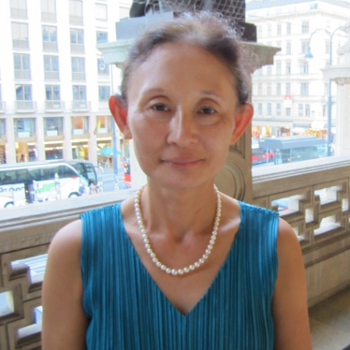Oktoberfest is in full swing in Munich, but this revival of the Bayerischer Staatsoper’s Die Meistersinger von Nürnberg was almost derailed when some of its singers fell ill. Klaus Florian Vogt, who had cancelled the first performance as Walther, was announced as still recovering. And Michael Volle replaced ailing Wolfgang Koch as Hans Sachs. But it was Volle and Vogt – the Sachs-Walther pair of Bayreuth over the past two summers – who made the greatest contributions to a successful performance.
Volle had sung in Berlin the night before and had only a few hours to prepare for the curtain in Munich. An assistant director, dressed as an apprentice, shadowed him throughout the evening to help with stage movement and text. Volle did not need assistance for the most part, so dominant and masterful were his singing and acting. His voice boomed and bloomed, with varying shades of volume, color and emotion. He had endless stamina, and was still standing after nearly six hours to sing Hans Sachs' speech about “German Culture”. After an initial round of applause at the end of the evening, behind the curtain rose loud cheers of the performers, of relief and joy.
Still under the weather, Vogt’s voice lacked some of his signature clarion beauty and apparent ease to ride the orchestra. Even in his tentative singing, he was solid in his technique and musicality, negotiating most of the high notes with success. He improved, finishing the Prize Song with distinction. Both Volle and Vogt can project every word with clear diction, strong presence and charisma, a sign of true master singers. Georg Zeppenfeld was another standout, with his velvety and stable voice rendering authority as Veit Pogner. Julia Kleiter as Eva projected fresh youthfulness in appearance and singing. Veterans Markus Eiche (Beckmesser) and Claudia Mahnke (Magdalena) rounded out a solid cast.
David Bösch's 2016 production updates the setting to a gritty middle class working neighborhood in modern day Nuremberg. Pogner owns a beer company and Sachs operates his cobblers shop out of a small truck. Act 1 and Scene 2 of Act 3 take place in a public square with a boxing ring-like elevated stage in the middle. A large screen backdrop illustrates the singing contest and introduces each master in Act 1, and shows photographs of Nuremberg masters in various crucial years of German history. Walther arrives towards the end of the prelude with a bag and a guitar case, wearing leather jacket and sneakers. He spies on Eva, and they immediately flirt as they join the procession of town folks singing the opening hymn. The action flows in smooth sequence, with apprentices and town folks placed on each sides of the stage.
Act 2 opens with Sachs’ truck stage right, with two tall public housing buildings towards the back with a wide opening in the middle. David rides his bicycle to his master’s shop, while Eva and Magdalena appear from one of the buildings. Beckmesser deliver his serenade in a most awkward manner, on top of a small construction crane that goes up and down and sways side to side. One has to admire Markus Eiche for his courage and nerve to sing high up in a swaying base; it is certainly not for those with fear of heights. After the “riot” scene at the end of the act, Beckmesser is left alone on stage on the floor. A group of thugs in monkey masks appear and intimidate the nightwatchman, sung by Milan Siljanov with strength and elegance. After the watchman disappears in his car, one of the thugs unmasks himself and prepares to strike Beckmesser with a stick as the stage blackens. While the scene may have been amusing in 2016, in today’s more charged atmosphere in European politics, with the violence in Chemnitz a recent memory, the scene is now sinister and disturbing. The production’s persecution of Beckmesser is complete when, at the end of Act 3, as Walther and Eva embark on their new life and Sachs glows in public adoration, Beckmesser runs in with a pistol and commits suicide.
While the production has some interesting ideas, the overall direction is not very fine tuned; the cluttered and crowded stage limits the interaction of performers, although the director follows most of Wagner’s original stage direction. Kirill Petrenko focused on bringing out intimate details in the score rather than the architectural structure of the music. While his chamber-like conducting brought out beauty in strings and woodwinds, one missed propulsion of brass in the overture, and the deep sorrowful force of low strings in the Act 3 prelude. The concluding moments of Act 3, however, were played with thrilling power and emotion, with the entire orchestra let free to express Wagner’s glorious celebration of art in life.




